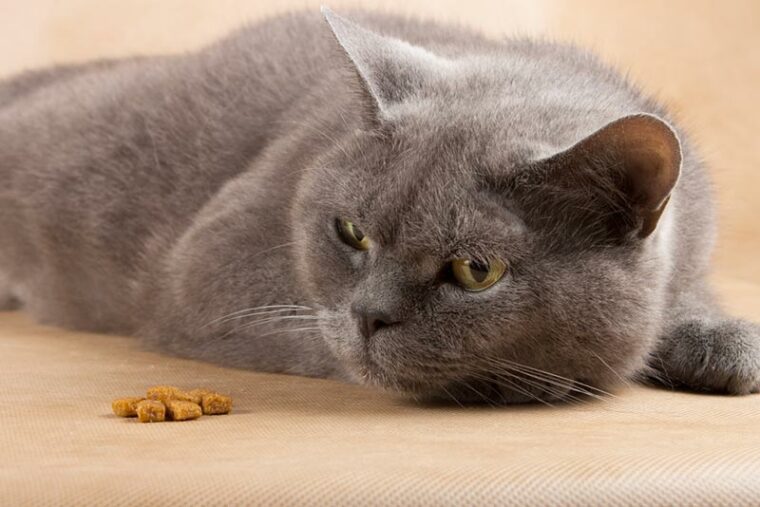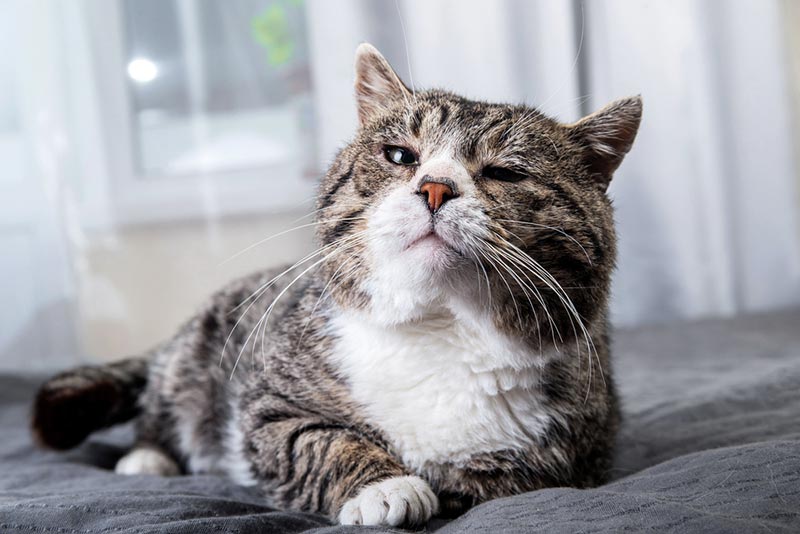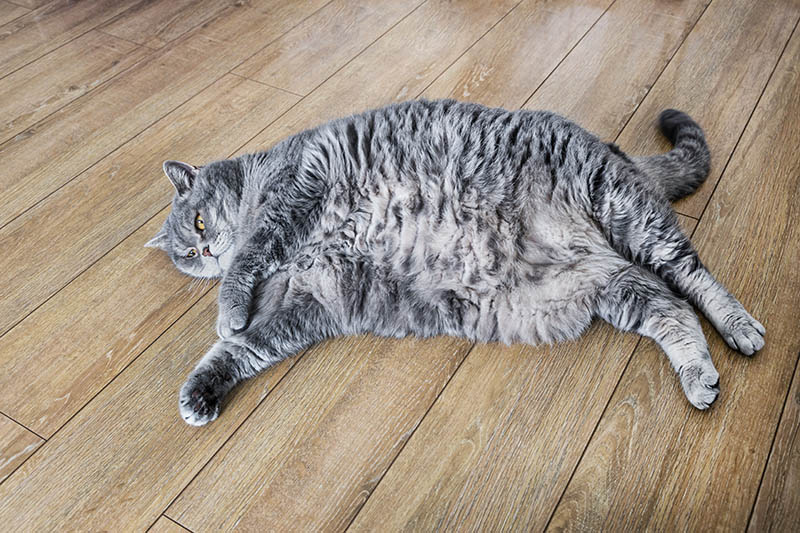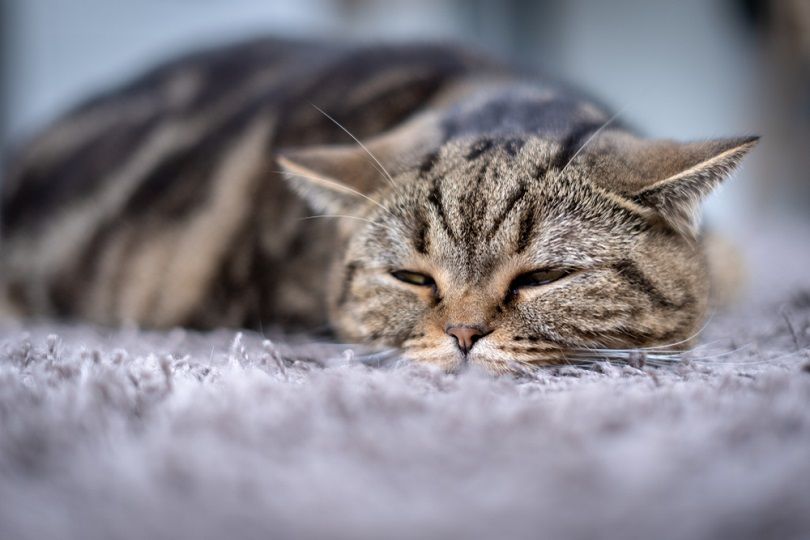[ad_1]

Cats are self-grooming animals, and when they stop cleaning themselves, it can be a sign that something is amiss. They require assistance from their owners to maintain healthy coats, especially if long-haired, but the felines do most of the work. Although cats are experts at hiding illnesses and injuries, they cannot disguise a ragged coat from their owners. Below, we’ll discuss what to do when your cat has an unhealthy coat and the reasons behind it.

The 3 Reasons Why Your Cat Has Stopped Grooming
If your cat has been more unkempt than usual, a few things could be causing such a drastic behavior change: age, weight, and health.
1, Age

As your cat ages, you will likely see him resting more and experiencing physical challenges. You may even notice that his coat has lost some of its shine. That can be in part due to a lack of grooming. Your senior cat may be grooming himself less often due to his physical challenges.
If your cat has trouble moving, twisting, or positioning himself for grooming, he cannot remove dirt, debris, and loose hair. This can result in tangles or painful mats, so getting ahead of your senior cat’s reduced grooming habits is important.
How to Help
2, Obesity

Weight can be a significant factor in determining how well your cat grooms himself. If your cat is overweight, he may be unable to reach certain parts of his body. He may also be more likely to develop arthritis, which would further contribute to his lack of grooming.
If you want to know whether your cat is obese, consult your vet. If your cat weighs 10–20% more than he should, he is considered overweight. If his weight exceeds 20% of what it should be, he is obese. Feline obesity is so common that it occurs in 63% of all cats in developed countries.2
Obesity brings significant health risks to your cat, including endocrine disorders, metabolic dysfunction, and cardiovascular issues. Beyond the grooming aspect, obesity presents serious problems.
How to Help
3. Illness or Pain

Sickness and pain may cause your cat to quit grooming himself. Cats are excellent at masking their pain, and poor grooming habits are one of the signs that something is amiss.
If your cat is unwell, you may notice other signs, such as increased sleeping, decreased eating, and changes in litter box behavior. Your cat’s illness may cause different signs to appear, so pay close attention to how your cat behaves and note anything out of the ordinary.
How to Help

Conclusion
It’s worrisome to see our cats behaving strangely, especially when that strange behavior leads to tangles and mats in their fur. If you can pinpoint the cause of your cat’s poor grooming, you will be better equipped to help them overcome it. Consult your vet as soon as you notice your cat has stopped grooming, and keep track of any abnormal behaviors. With your vet’s guidance, you can help your cat continue living a comfortable and happy life.
Featured Image Credit: YuryKara, Shutterstock

